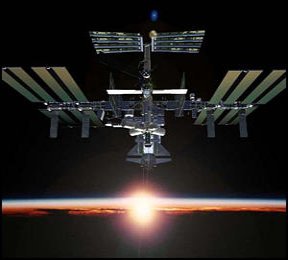This is an image of the International Space Station during a sunset.
Click on image for full size
Courtesy of NASA
Atlantis Set to Launch (Updated)
News story originally written on May 4, 2000
NASA is starting to wonder if the Space Shuttle Atlantis will ever make it into space again. Three days of bad weather kept the shuttle on the launch pad. The mission has already been delayed numerous times because of space shuttle problems and Commander James Halsell's ankle sprain.
NASA says the next scheduled launch is on May 18, 2000. The mission was delayed three weeks because a weather satellite has to be launched first. When they are finally in space, the astronauts will visit the International Space Station.
You might also be interested in:
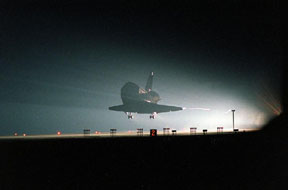
It took much longer than NASA had hoped, but the Space Shuttle Atlantis finally made it to the International Space Station (ISS) this past week. Many delays kept Atlantis grounded and the ISS in need
...more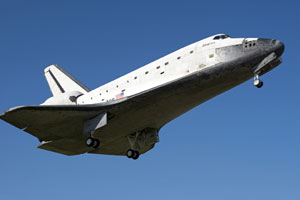
The space shuttle Atlantis finished its last flight when it landed on May 26, 2010. NASA is retiring the whole fleet of space shuttle orbiters by the end of 2010. Discovery and Endeavor are the other two
...more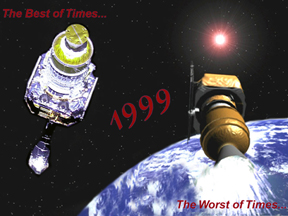
It was another exciting and frustrating year for the space science program. It seemed that every step forward led to one backwards. Either way, NASA led the way to a great century of discovery. Unfortunately,
...more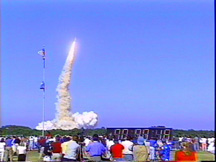
The Space Shuttle Discovery lifted off from Kennedy Space Center on October 29th at 2:19 p.m. EST. The weather was great as Discovery took 8 1/2 minutes to reach orbit. This was the United States' 123rd
...more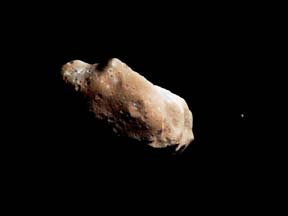
A moon was discovered orbiting the asteroid, Eugenia. This is only the second time in history that a satellite has been seen circling an asteroid. A special mirror allowed scientists to find the moon
...more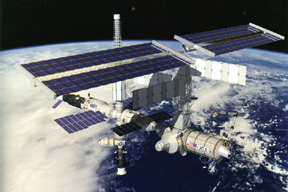
Will Russia ever put the service module for the International Space Station in space? NASA officials want an answer from the Russian government. The necessary service module is currently waiting to be
...more
A coronal mass ejection (CME) happened on the Sun early last month. The material that was thrown out from this explosion passed the ACE spacecraft. The SWICS instrument on ACE has produced a new and very
...more


